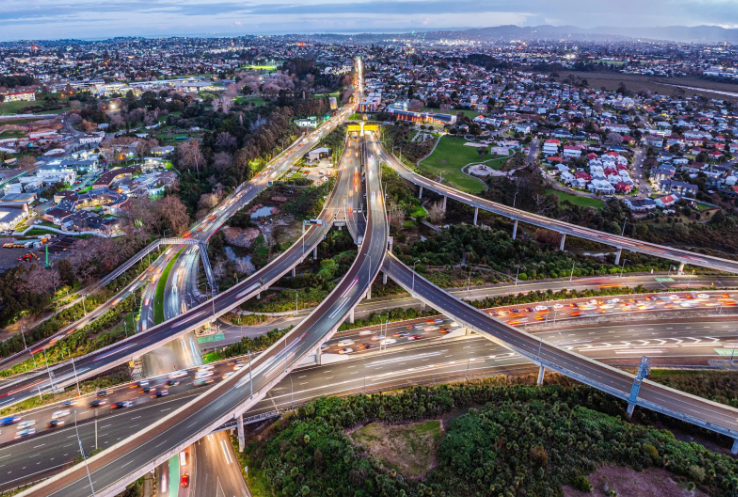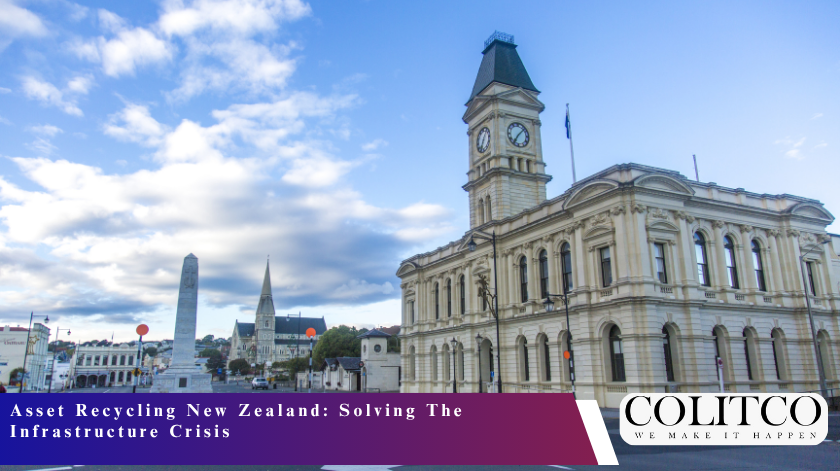A new financial crisis is unfolding in New Zealand as different essential infrastructures, such as roads, hospitals, and the water system, are being affected by a lack of investment for several years. Moreover, there is a continuous increase in public debt, which, in turn, is restraining the government’s capability to borrow more. Economists are now suggesting that New Zealand should resort to asset recycling as the solution on the table—a method that has been extensively implemented worldwide and applies to the New Zealand setting, i.e., the use of revenues from the sale of existing assets to build new infrastructure without the need to increase public debt.

New Zealand faces a financial crisis as underfunded infrastructure suffers nationwide
What Is Asset Recycling And Why Does It Work
The process of asset recycling means that the governments can have a lease on the particular assets or even sell them, while the money that is received from this is used for further development of infrastructure. In this particular case, the assets are not fully privatised; they are rather sought to be dealt with. Australia is one good example of this method, and the country has made a gross income of A$32.7 billion through asset leasing. The latter, including the 99-year lease of Transgrid for $10.3 billion, has contributed to the funding of roads, energy, and transport projects. This remodelled the delivery process by cutting five to seven years. One of the measures that Australia took was to maintain the supervision aspect. This would, in turn, ensure the ongoing provision of services that are significant to the public.
New Zealand should probably learn from the Australian experience and introduce a similar system, but with a different approach to reaching the public, possibly through the use of the NZ infrastructure bonds idea as a means of financing.
Can New Zealand Unlock Crown Assets?
It is said the Crown’s assets are worth around NZ$571 billion, covering businesses and infrastructure; the government does not really need much of it, though. But New Zealand suffers a shortage of infrastructure amounting to about NZ$104 billion NOW, increasing to NZ$106 billion over the next 30 years.
Through asset recycling, it would be possible to cobble up this immobilised money for the infrastructure needs like public transportation, water, and housing. It would free up the government to render public services that are better and at the same time to stay fiscally orderly.

New Zealand’s NZ$571B assets contrast with NZ$104B current infrastructure shortfall
Which Assets Could Be Recycled?
The most important organisations in this regard are:
- Energy giants such as Meridian, Mercury, and Genesis
- The national power distribution network, Transpower
- Postal services, regional ports, and non-core government businesses
These properties promise continuous and reliable income, which is why they are very attractive to investors, but can be kept under the control of the government. Dividing the assets with an agreement and/or selling the company in chunks can lead to a considerable amount of money for infrastructure.
What Governance Safeguards Are Needed?
Transparency, independent supervision, and the securing of funds through legal measures are necessary if companies want to see Success. For instance, the Restart NSW Fund of Australia introduced a rule that the earnings are to be spent exclusively on infrastructure production.
To illustrate, the proceeds from the rebuilt Christchurch City held in the new government-owned company have been spent on a new stadium and a performing arts centre named Te Matatika. There are talks of developing a public-private partnership for a new convention centre next to the stadium.
Australia’s Graft Funds are one of the rating agencies using this kind of model; however, the relevant department overlooks these plans. This has been accompanied by plans to have the money thus collected committed to the particular project.

Christchurch rebuild funds used for stadium, Te Matatika, potential convention centre
Will Political Leaders Accept Asset Recycling?
The New Zealand government has not been very daring in spite of the fact that the political stance is considered to be less and less of a concern about ownership. But with the increasing debt pressure, the idea of recycling assets might be more positively received than it is now.
In a recovery scenario, asset recycling can indeed be an excellent choice. There has to be a business case, though. The government must be very cautious to avoid public backlash with respect to privatisation.
How Could Asset Recycling Solve NZ Infrastructure Funding Solutions?
The capital needed for major projects can be obtained through asset recycling without the necessity of tax hikes or the creation of debt. It allows governmental units to change into being stored assets in one place they are made part of productive infrastructure.
Australia’s accomplished developments due to this have been striking. In the case of New Zealand, it is expected that the described asset recycling technique could turn the tide of the infrastructure crisis, lift public services, and offer employment opportunities. Leaseholds of power plants, dungeons, etc., purchased by international investors might also be considered as another way to get the economy moving.
This method is capable of improving productivity, long-term and sustainable financial stability, and also the well-being of the human community when exercised in an open, fair and equitable way.
Also read: Australia and New Zealand See Inflation Drop, But Which Economy Is Stronger?
FAQs
Q1: Why is Asset Recycling Considered a Good Process?
It is one of the ways to make money available for infrastructure development projects without borrowing any money.
Q2: If Public Assets Are Rented Or Sold Through Asset Recycling, Is It Administrative Privatisation?
No, definitely not. The government can hold on to its control even with the sale of part of the ownership or putting the assets on long-term leasehold.
Q3: Do You Know What Type Of Assets Are Suitable?
Non-core assets like energy companies, ports, and postal services.
Q4: How Soon Can We Expect The First Achievements?
In case the projects are properly executed, the finishing of some of them may be advanced for a period of five to seven years at the limit.












